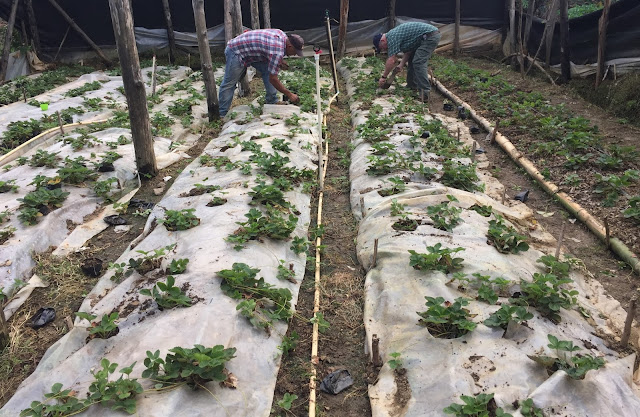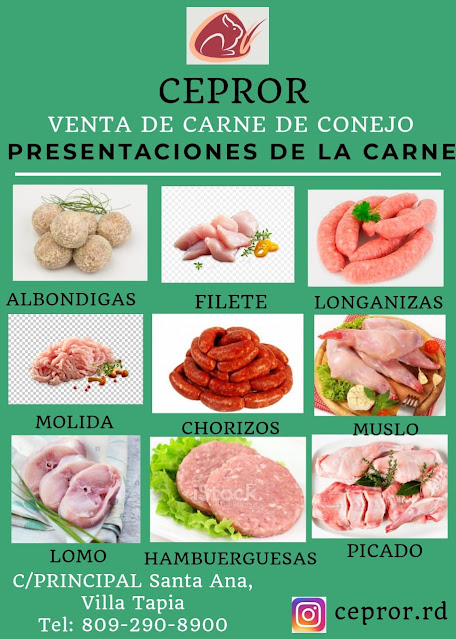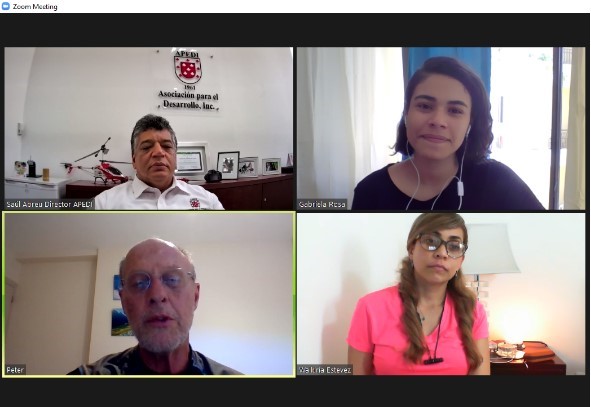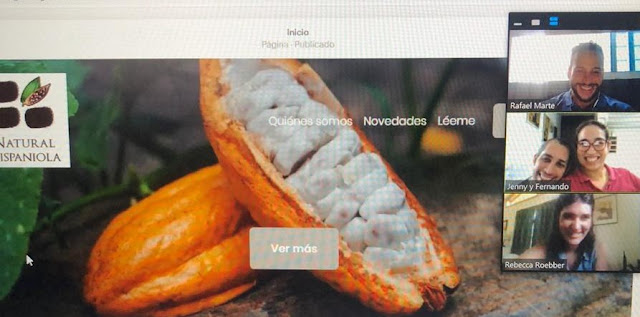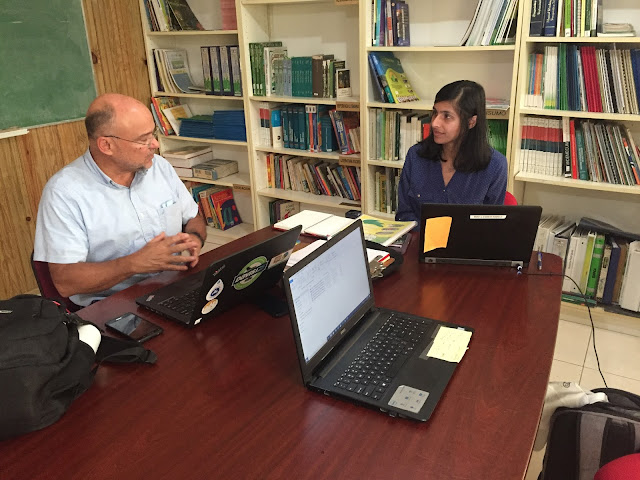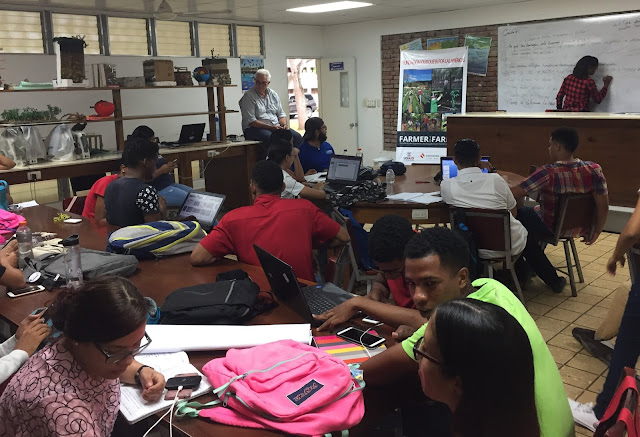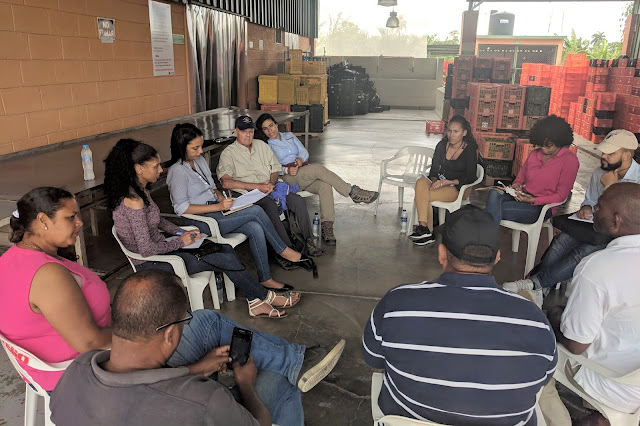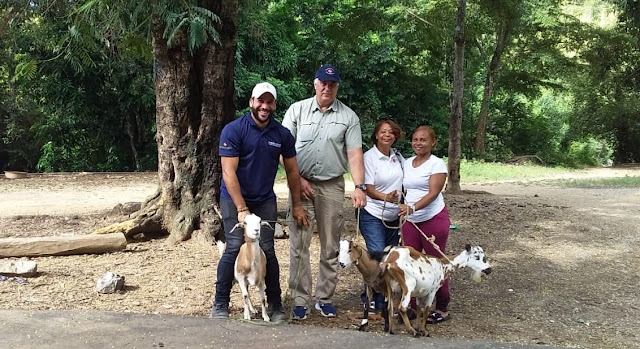Interactive and Accessible Watershed Conservation Education through Scale Models
.jpeg)
Pictured above from left to right: F2F Field Officers Franqui Linarez and Maria Montas, F2F Volunteers Patricia Algara and Cesar Cahusac Last year, Patricia Algara was invited to the Dominican Republic to consult with APEDI and Fondo Agua Yaque del Norte through Partners of the Americas’ USAID-funded Farmer-to-Farmer Program. In their effort to promote education and conservation of the Yaque del Norte River's natural resources they want to build a interactive scale model of the entire watershed at the Parque Central in Santiago so that people can better understand the importance and magnitude of the river and the impacts that urban and agricultural pollution is having on its waters. The Yaque del Norte River Basin is the most important one in the Dominican Republic, with an extension of 7.053 km², equivalent to a 14.6% of the national territory. It impacts around 1.8 million people in 40 different municipalities from six different provinces. It has a length of 296 kilomete...




